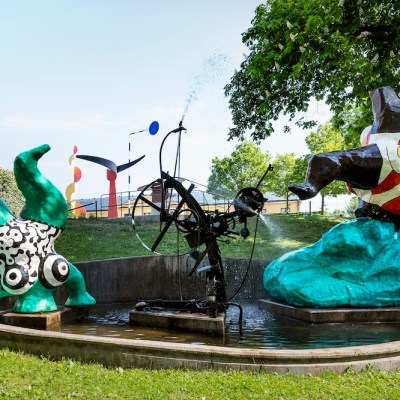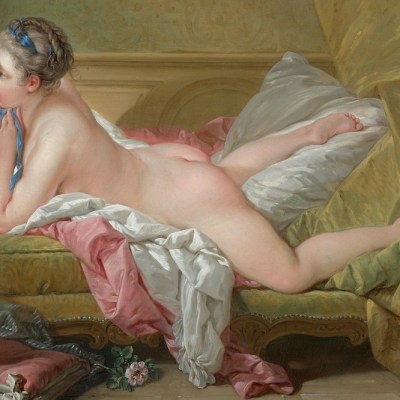Khaled Sabsabi will no longer represent Australia at the 2026 Venice Biennale, reports the Art Newspaper. Creative Australia made the announcement late on 13 February, only five days it first announced the selection of the Lebanese-Australian conceptual artist. It has also dropped Michael Dagostino as curator of the pavilion. The pair were chosen by an independent advisory panel. On Tuesday 11th, the Australian published an article criticising Sabsabi’s ‘questionable and ambiguous’ depictions of Hasran Nasrallah, the assassinated leader of Shia militia group Hezbollah, and citing a work of 2007, now in the collection of the Museum of Contemporary Art Australia. Also this week, Liberal senator and opposition arts spokesman Claire Chandler questioned Creative Australia’s choice of artist and criticised the Labor government’s record of combating antisemitism. In a statement to explain its decision Creative Australia said that its board ‘believes a prolonged and divisive debate about the 2026 selection outcome poses an unacceptable risk to public support for Australia’s artistic community’. The reaction in the arts community has been furious. On Friday, reports the Guardian, Mikala Tai, Creative Australia’s head of visual arts and its programme manager have resigned, and the financier and philanthropist Simon Mordant (a former commissioner of the Australian Pavilion) has also resigned as an international ambassador for the Venice Biennale. In a statement to Guardian Australia, Sabsabi and Dagostino said, ‘Art should not be censored as artists reflect the times they live in.’ All five other artists shortlisted to represent Australia have written an open letter to Creative Australia demanding that Sabsabi be reinstated.
In other Venice Biennale news, Qatar will build a permanent national pavilion in the Giardini – the first country to do so in 30 years, reports the Art Newspaper. (In the last 50 years, only Australia and South Korea have opened new national pavilions.) Though the project is not expected to be completed until next year, the site will be used during the architecture biennale this May for an installation by Pakistani architect Yasmeen Lari. The architect for the building has not yet been announced. Sheikha Al Mayassa bint Hamad bin Khalifa Al Thani,, chair of Qatar Museums and commissioner of the Qatar Pavilion, said, ‘Qatar is proud to take its place in this international assembly, advancing our role as a global leader in cultural diplomacy.’
The painter and critic Walter Robinson, who was the first editor of Artnet Magazine, has died at the age of 74. Born in Wilmington, Delaware, Robinson moved to New York in 1968 to study psychology and art history at Columbia University. He soon became a fixture of the city’s art scene, beginning as editor of art journal Art-Rite in the early 1970s. In 1976, he cofounded the non-profit Printed Matter to publish artists’ books and later joined the artist-led initiative Collaborative Projects. Working as an editor for the East Village Eye and Art in America in the ’80s, Robinson become known for his wry humour and sharp criticism, and in 1995, he became the first editor of Artnet Magazine – ‘the first and best-known art magazine to be published solely on the internet’, as Robinson put it, which he led until the publication closed in 2012. In his art, Robinson was known for his sardonic depictions of consumer culture – which he shared with other members of the Pictures Generation – appropriating images from cheap fashion catalogues and photographs of fast food and pharmaceuticals. His work is held in the permanent collections of museums that include the Whitney Museum of American Art and the Museum of Modern Art, New York.
The husband of Brent Sikkema, the art dealer who was murdered in his home in Brazil in January 2024, has been charged in New York with hiring his killer. The New York Times reports that last Tuesday (11 Feb), Daniel Sikkema was arrested and charged with committing murder-for-hire, passport fraud and conspiracy to murder a person in a foreign country. In a statement, then-acting head of the U.S. attorney’s office in Manhattan, Danielle R. Sassoon, said that Daniel Sikkema’s actions were ‘a cold-blooded plot to murder’. His laywer, Richard Levitt, denied the charges, stating that the defendant ‘now as always maintains his innocence’. If convicted, Daniel Sikkema faces a mandatory penalty of life imprisonment or death. Brent Sikkema was the founder of the gallery formerly known as Sikkema Jenkins & Co., he represented artists including Kara Walker. (On the anniversary of his death, the gallery renamed itself Sikkema Malloy Jenkins.)



